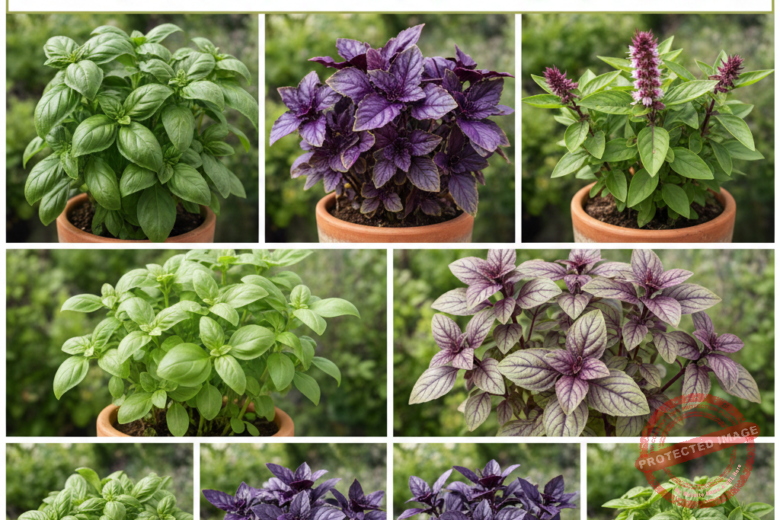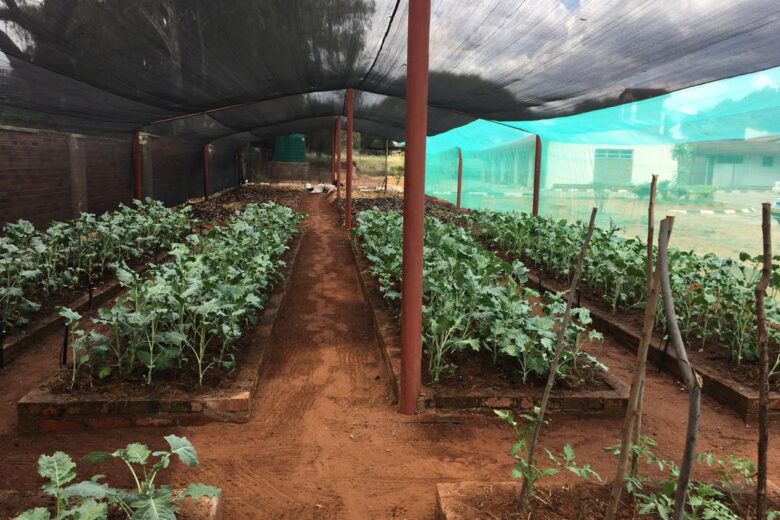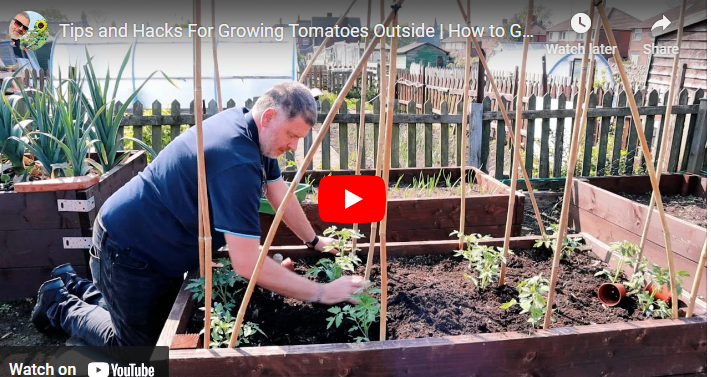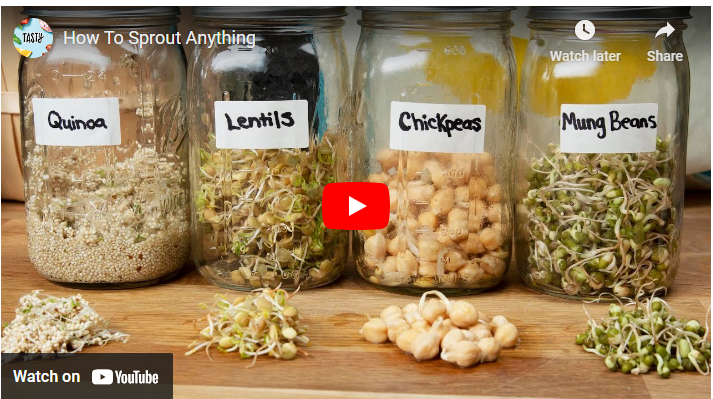Vegetables are one of the widely grown plants in South Africa and it can be a rewarding and enjoyable experience considering the importance and huge demand for vegetable production in the country.
Growing vegetables in South Africa involves selecting the right planting site, soil preparation, planting vegetables, proper watering, fertilizer application, weed control, disease, and pest control, and harvesting.
Vegetables have important nutritional value especially vitamins and mineral nutrients, and economically wise, it is highly profitable because of the day-to-day demand which is among the motivation to start growing your vegetables.
If you are looking for the right step-by-step guide on how to grow vegetables in South Africa, this informative piece contains all that you need to know providing you with the right knowledge and tools.
How to Grow Vegetables in South Africa
Growing vegetables is one of the simplest farming endeavors you can begin. However, if you don’t know the steps involved, here are some tips to get you started on your journey to growing vegetables in South Africa.
Step 1: Selecting the Right Planting Site
The growing vegetable is easy, however, you need to select the right planting site. The site you choose either in your backyard or elsewhere will have a strong impact on your yield.
As such, ensure you opt for a planting site that receives at least 6-8 hours of direct sunlight each day because most vegetables require plenty of sunlight. Also, the site should be protected from strong winds.
You need to consider the soil property and make sure the soil on the planting site should be loose and nutrient-rich soil with a pH of 6.5-7.0. More so, the planting site should have access to water, and market proximity.
Step 2: Soil Preparation
You should clear the planting site by removing debris (rocks, stones, etc.) and existing vegetation using simple farm tools or mechanical equipment. till the land to aid easy plant penetration and water drainage. Level the land so that the soil will be even and also remove plant roots, and breaking or removal of large soil or stones.
The next course of action is to prepare the soil to make it suitable for planting. Integrate organic matter such as compost or manure into the soil to improve soil nutrients. You can also make use of chemical fertilizer.
Step 3: Select Vegetable Variety
Select the preferred vegetables you intend to plant and make sure the variety you choose is compatible with the space available to you, the climate, and the soil condition of the planting site. Also, plant vegetables are in demand for profitability.
Examples of vegetables you can grow in South Africa include tomatoes, peppers, carrots, potatoes, lettuce, etc.
Step 4: Planting Vegetables
Now that you have settled for the vegetable variety you want to plant, make sure before planting your vegetable, you can make farm beds on the farm or level the farmland depending on the variety you intend to plant.
It is best to soak the seedlings for 2 to 3 hours before planting to awaken the dormant seeds. The vegetable seedling can be planted through seed broadcasting or direct planting into the furrow. After planting, you should water the soil lightly.
Step 5: Proper Watering
Planting vegetables requires proper watering during planting and throughout germination. Ensure you water your vegetables twice a day preferably early morning and evening. Ensure you water the vegetables deeply and frequently so that the water can reach deep roots.
Step 6: Fertilizer Application
Apply fertilizer to your vegetable plants if needed. The best fertilizer for vegetables is organic fertilizer such as poultry manure, compost, and farmyard manure. If using chemical fertilizer, ensure you use a balanced fertilizer that can supplement the soil’s natural fertility.
Step 7: Weed Control
Ensure you monitor the field for weeds so that you can remove the in weeds a timely. Weeds can be removed either by hand-weeding or using a hoe or shovel to remove them.
Step 8: Disease and Pest Control
Vegetables are susceptible to disease and pests, which is why you must monitor your vegetable plant to control disease and pest infestation. Common pests and diseases that affect vegetables include aphids, thrips, whiteflies, caterpillars, bacterial wilt, Alternaria leaf spot, and downy mildew.
To control pests and diseases, employ measures such as a cultural method that includes crop rotation, early sowing, and adequate spacing of vegetable plants to help reduce pests and diseases.
Also, you can introduce natural or chemical insecticides or fungicides to control pests and diseases. While biological control that can be implemented includes predatory insects, nematodes, and fungi is also an effective way to manage pests and diseases.
Step 9: Harvesting
Most vegetables are ready for harvest within 3 to 4 months. Vegetables are easy to harvest either by plucking the fruits or uprooting them. However, it is best to harvest your vegetables when they are ripe and ready.
Variety of Vegetables in South Africa
South Africa has a diverse range of vegetables that can be grown, which includes both indigenous and exotic vegetables.
Some of the most commonly grown vegetables in South Africa include tomatoes, cabbage, spinach, onions, sweet peppers, carrots, beans, and potatoes.
Other vegetables that can be grown include cauliflower, broccoli, lettuce, eggplant, and cucumber.
Price of Vegetables in South Africa
The price of vegetables in South Africa varies depending on the type of vegetable and the location where it is being sold.
Generally, vegetables are sold at affordable prices in local markets, supermarkets, and street vendors. The prices of vegetables are affected by factors such as the season, supply and demand, and transportation costs.
Best Agronomic Practices to Engage in Growing Vegetables in South Africa
To grow vegetables successfully in South Africa, it is important to engage in best agronomic practices, which includes the following:
- Soil preparation: Prepare the soil by loosening it to a depth of at least 30cm, remove weeds, and add compost or other organic matter to improve soil fertility.
- Irrigation: Provide sufficient water for the plants, taking into consideration the type of vegetable, soil type, and weather conditions.
- Fertilization: Apply appropriate fertilizers to the soil according to the needs of the vegetable being grown.
- Pest and disease control: Monitor the plants regularly for pests and diseases, and apply appropriate control measures when necessary.
- Crop rotation: Rotate the vegetables grown on a piece of land to reduce the risk of pests and diseases and to maintain soil fertility.
Projected Profit of Vegetables in South Africa
The profitability of vegetable farming in South Africa varies depending on several factors, such as the type of vegetable being grown, the size of the farm, and the market demand for the produce.
However, vegetable farming can be a profitable venture if it is well-managed, and if the farmer is able to access the right markets.
Common Diseases and Pests of Vegetables
Vegetables in South Africa are prone to various pests and diseases, including aphids, caterpillars, fruit flies, nematodes, and powdery mildew. To control these pests and diseases, farmers can use a combination of chemical and non-chemical control measures. For example:
- Aphids: Use an insecticide or a soapy water spray.
- Caterpillars: Use a biological control such as Bacillus thuringiensis (BT) or a chemical insecticide.
- Fruit flies: Use baits or traps.
- Nematodes: Use a crop rotation system or soil fumigation.
- Powdery mildew: Use a fungicide or improve air circulation around the plants.
Different Propagation Methods of Vegetables
There are various propagation methods that can be used to grow vegetables in South Africa. The most common methods include seed propagation, transplanting, and vegetative propagation. Seed propagation involves sowing seeds directly into the soil or into seedling trays.
Transplanting involves growing the vegetable seedlings in a nursery and then transplanting them into the field. Vegetative propagation involves using a part of the plant such as a stem or leaf to propagate a new plant.
Vegetable Gardening South Africa Beginners Pdf
Vegetable Gardening South Africa Beginners Pdf is a comprehensive guide for beginners who are looking to get started in vegetable gardening in South Africa. It covers a wide range of topics from choosing and preparing the site for planting, to planting, caring for, and harvesting vegetables.
The guide also covers crop rotation, planting for long-term yields, pest control, and obtaining the best results from your vegetable garden. It is designed to provide an easy-to-understand guide for South African gardeners and is perfect for those who are just starting.
Container Vegetable Gardening In South Africa
Container vegetable gardening is a popular form of gardening in South Africa. It involves the use of containers such as pots, barrels, and raised beds to grow vegetables.
It is an efficient and space-saving way of growing vegetables as it allows you to grow a variety of vegetables in a limited space. Container gardening also has the advantage of protection from pests and disease, as well as allowing for better control of the environment in which the vegetables are grown.
Container gardening can be done in any climate, making it ideal for South Africa, which experiences a wide range of temperatures throughout the year. Container vegetable gardening is also relatively inexpensive and easy to maintain, making it a great choice for beginner gardeners.
How To Start A Vegetable Garden From Scratch In South Africa
Starting a vegetable garden from scratch in South Africa is relatively straightforward and can be done in a few simple steps. The first course of action is to choose an ideal location for your garden.
Ideally, this should be a sunny spot with adequate drainage and access to water. The soil should be tested to ensure it is suitable for the types of vegetables you plan to grow.
The next course of action is to prepare the soil. This involves digging up the soil to loosen it and removing any weeds or debris. The soil should then be amended with compost, manure, or other organic matter to improve its fertility and drainage.
Once the soil has been well prepared for planting, it’s time to plant your vegetables. Make sure to choose varieties that are suited to the climate in South Africa and are suitable for the soil type. Planting should be done according to the instructions on the seed packets.
Lastly, make sure to water the plants regularly and apply organic fertilizers to keep them healthy. Pruning and weeding regularly will also help to keep the garden in good condition. With a bit of care and effort, you can have a thriving vegetable garden in no time.
Easy Vegetables To Grow In South Africa
South Africa is home to a variety of vegetables that are easy to grow. These include tomatoes, peppers, cucumbers, spinach, onions, beans, peas, and carrots. All of these vegetables can be grown in a range of soil types, making them suitable for a variety of different climates.
They can be grown both in the ground and in containers, so they are also suitable for small spaces. South African vegetables are also known for their robustness and resistance to diseases, meaning they are easy to care for and maintain.
What Vegetables To Plant In September In South Africa
In South Africa, September is the end of spring and the beginning of summer, so it is a great time to plant vegetables. Popular vegetables to plant in September include tomatoes, eggplants, green beans, peppers, lettuce, spinach, carrots, and squash.
Other vegetables that can be planted in September include beets, broccoli, cauliflower, turnips, radishes, and kale.
Vegetable Gardening For Beginners In South Africa
Vegetable gardening in South Africa is a great way to get fresh, nutritious produce for your family. It doesn’t matter if you only have a small space or a large garden, with the right planning and preparation you can grow a range of vegetables.
To start, find a suitable spot in your garden that receives at least 6-8 hours of direct sunlight each day. This is important because vegetables need sunlight to grow. Prepare the soil by adding compost and fertilizer to improve its fertility.
Next, decide which vegetables you would like to grow such as tomatoes, carrots, spinach, beans, squash, etc. Depending on the type of vegetable, you may need to buy seeds or seedlings. Plant the vegetables by the recommended spacing and water regularly.
As your vegetables grow, be sure to protect them from pests and diseases by using natural methods such as companion planting, crop rotation, and mulching. Also, be sure to harvest your vegetables before they become overripe, and don’t forget to fertilize the soil regularly to ensure healthy growth.
KZN Vegetable Planting Guide
KZN Vegetable Planting Guide is a publication by the KwaZulu-Natal Department of Agriculture and Rural Development that provides advice and guidance on vegetable planting in the KwaZulu-Natal province of South Africa.
The guide provides detailed information on the different types of vegetables that can be grown in the region, their ideal growing conditions, and how to prepare the soil and plant them.
It also offers advice on how to care for the plants, including nutrition, irrigation, and pest control. The guide also provides tips for the successful harvesting and marketing of vegetables.
How To Grow Vegetables In South Africa
Growing vegetables in South Africa is relatively easy and can be done in both small and large spaces. The key to success is to choose the right vegetables for your climate, soil type, and growing conditions.
Before you start, make sure your soil is in good condition. This includes testing the soil for nutrients, pH, and organic matter. Once the soil is ready, you can choose a suitable location for your vegetable garden and start planting.
When selecting vegetables to grow, there are several factors to consider. Choose vegetables that are suited to your climate, soil type, and the amount of sunlight available. You should also consider the season and the length of time it takes to harvest the vegetables.
Also, you will need to plan on how to take care of your vegetables. This includes watering, mulching, weeding, and fertilizing. You should also pay attention to pests and diseases as they can quickly destroy your crops.
You should also consider harvesting and storing your vegetables. This includes harvesting at the right time, cleaning, and storing the vegetables in a cool and dry place.
Growing Vegetables At Home In South Africa
Growing vegetables at home in South Africa can be a rewarding experience. With a mild climate and plenty of sunshine, South Africa is an ideal place for growing vegetables.
There are many benefits to growing vegetables at home, including knowing exactly where your food comes from, having access to fresh produce, and saving money. When beginning a vegetable garden, it’s important to choose the right location, prepare the soil, and select the right vegetables to grow.
It’s important to ensure that the vegetables are properly watered and protected from pests. With a little bit of knowledge and effort, South African gardeners can successfully grow vegetables at home.
Easy To Grow Vegetables In South Africa
South Africa has a variety of easy-to-grow vegetables that can be grown in a variety of climates and soils. Some of the most popular vegetables to grow in South Africa include tomatoes, peppers, lettuce, eggplants, spinach, potatoes, onions, garlic, carrots, celery, and cabbage.
All of these vegetables are relatively easy to grow and can be harvested in a short period. Most of these vegetables grow best in full sun and need plenty of water.
Be sure that the soil type on the planting site is well-drained and amended with organic matter. With the right conditions, these vegetables can provide a nutritious harvest for years to come.
Conclusion
Growing vegetables in South Africa can be a rewarding experience. With the right combination of soil, water, and sunlight, it is possible to grow a variety of vegetables in this beautiful country.
By selecting the right varieties based on their climate conditions, planting the seeds in well-drained, fertile soil, and providing enough water and sunlight, you can successfully grow vegetables.



